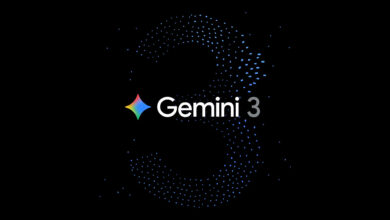Artificial Intelligence ChatGPT Can Now Access The Internet!

OpenAI’s AI-powered viral chatbot ChatGPT can now surf the web in certain situations. This is the first and big step for ChatGPT to keep up-to-date information.
OpenAI has introduced a “plugin” feature for ChatGPT that extends the bot’s functionality by providing access to third-party information sources and databases, including the web. The feature will initially be available in alpha for waiting-listed ChatGPT users and developers. OpenAI emphasizes that it will prioritize a small number of developers and premium ChatGPT Plus subscribers before introducing larger scale and API access.
If you don’t know, remember, all the answers given by ChatGPT are based on the dataset it was trained and fed. This dataset contains information up to the end of 2021. In other words, ChatGPT has no information for anything that happened after this date, so when you ask for up-to-date information, nonsense can often be seen for this reason.
OpenAI says the plugins can allow the bot not only to surf the web but also interact with specific websites, turning the system into a comprehensive interface for all kinds of services and sites. According to OpenAI, it’s like “ChatGPT has eyes and ears”.
Hello Bing
The most important plugin feature is OpenAI’s first-party web browsing plugin, which allows ChatGPT to pull data from all over the web to answer various questions posed to it. This plugin pulls content from the web using the Bing search API and references the sites it visits. This event is very similar to the features Microsoft offers in the new Bing Chat. Using the GPT-4 model, Bing was also able to access up-to-date data.
The Risks Are Growing
As OpenAI’s own research reveals, a chatbot with web access is inherently a bit risky. ChatGPT, which is currently struggling from time to time to provide reliable answers, will be even more difficult to choose and present the correct one in the current data. Although search engines such as Google and Bing use security mechanisms to keep the most reliable sites high in search results, we have also seen that harmful sites are on the first line of the search page from time to time.
OpenAI acknowledges that a web-enabled ChatGPT can perform all sorts of undesirable behaviors, such as sending fake and spam emails, bypassing security restrictions, and generally “enhancing the capabilities of bad actors to defraud, deceive, or exploit others.” However, the company also states that it has “implemented various security measures” internally and externally to prevent this. Time will tell whether these measures are sufficient.
Their Promises Are Too Big

A shared demo video uses ChatGPT to find a recipe and then order ingredients from Instacart. ChatGPT automatically uploads the bill of materials to the shopping service and directs the user to the site to complete the order.
OpenAI says it offers plug-in access to a “small group of users.” Initially, there are 11 plugins for external sites, including Expedia, OpenTable, Kayak, Klarna Shopping, and Zapier. OpenAI also provides some plugins called “Scan”, one for interpreting the code and the other allowing ChatGPT to get information from the internet.
As an example of what the browsing plugin can do, the company cites someone asking how the box office sales of this year’s Oscar winners compare to recently released movies, and the bot shows which sources it looks at before giving an answer. This was something ChatGPT had not been able to achieve before.

This experimental feature is similar to Microsoft’s Bing, which lets it feed GPT-4 (the underlying language model of ChatGPT) output from the internet with a proprietary technology: Microsoft Prometheus. But OpenAI’s plugin doesn’t just get real-time information. It can also allow it to “perform actions on behalf of the user” by connecting to APIs, according to the company’s documentation. This can make it much stronger. So, while Bing can help you plan a vacation by giving you information about flights and hotels, ChatGPT will also allow you to book in addition.






